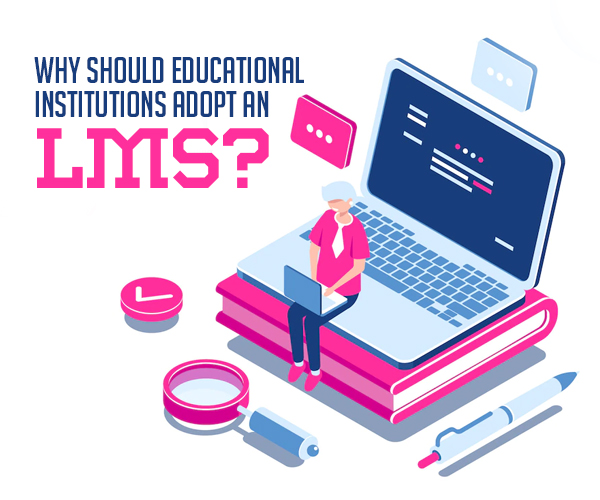Learning Management Systems (LMS) are software programs that allow teachers to create lessons, assign them to students, track their progress, and provide feedback. They can be used to deliver content from any online course provider or even offline resources like textbooks. LMSs are great tools for educators who want to engage their students through interactive activities and games. LMS can be used to deliver content through any type of media including video, audio, text, images, etc.
With the help of an LMS, the teachers and students can interact through a web-based platform. This system can be used to create assignments, manage exams, and grade them. It can also help to keep track of attendance, and other information about each student.
LMS (Learning Management System) has been around for years and is being used as employee training software by multiple businesses. However, its use in education was not widespread until recently. Many universities and colleges are still using paper-based systems. With the advancement of technology, LMS has become an indispensable tool for educators.
Here are some benefits that LMS can bring to your educational institution.
Easy Accessibility
With LMS, students have easy access to their course materials at any time and from anywhere. This means they do not need to wait for class sessions to get their hands on their notes. They can even access them at home if they want to review them later.
Collaboration
LMS allows teachers and students to collaborate easily. Students can ask questions directly to their teachers via email or chat. Teachers can provide feedback to students through comments, ratings, and surveys.
Ease of Use
LMS platform is easy to use as the interface is user-friendly. The students and the teachers can start using the platform with very little training.
Better time management
LMSs are great tools that can help educators manage their time better. They allow them to create lesson plans, track student progress, and even grade assignments, almost in no time. In addition, they provide teachers with real-time data about how students are performing. This information can then be used to make decisions about future instruction.
Improved Engagement
LMSs are a great way to engage students in learning. Students have access to online content 24/7, allowing them to learn at their own pace. Teachers can also use this information to tailor lessons to individual needs.
Cost-Effective
Learning Management Systems can help you save a lot of time and money. Previously, educators used to spend hours creating lesson plans and grading papers. But with an LMS, they can do both in minutes.
Easy Installation
An LMS is easy to implement. Most LMSs are web-based (cloud-based LMS), making them accessible from any device, such as – Smartphones, Laptops, and Tablets. There are no software downloads, updates, or installation requirements.
Customizable Content
With customizable content, the users can add content to the LMS with ease. This includes images, videos, documents, links, and other media files. Teachers can use this feature to create lesson plans that include multimedia elements.
Flexibility
LMSs are flexible. An LMS can be customized to meet your specific needs. You can add features as needed, including quizzes, videos, and interactive activities.
Security
LMSs are secure. All sensitive information is kept private and protected. You do not have to worry about getting your sensitive information compromised.
Features of Learning Management Systems include:
- Content creation – Create courses, lessons, quizzes, assignments, tests, announcements, etc.
- Student enrollment – Manage student accounts, enrollments, registrations, etc.
- Course administration – Track grades, attendance, progress, etc.
- Communication – Send messages to students, teachers, administrators, parents, etc.
- Reporting – Generate reports, graphs, charts, etc.
The learning management system (LMS) has become a staple in education. With its ability to track student progress, provide feedback, and allow teachers to create lessons, the LMS can help students learn better. However, not all LMSs are created equal. Some have features that make them ideal for schools while others may be better suited for businesses. We recommend doing proper research before investing in an LMS, and choosing the features that are useful for your institution as this will help you save money.















